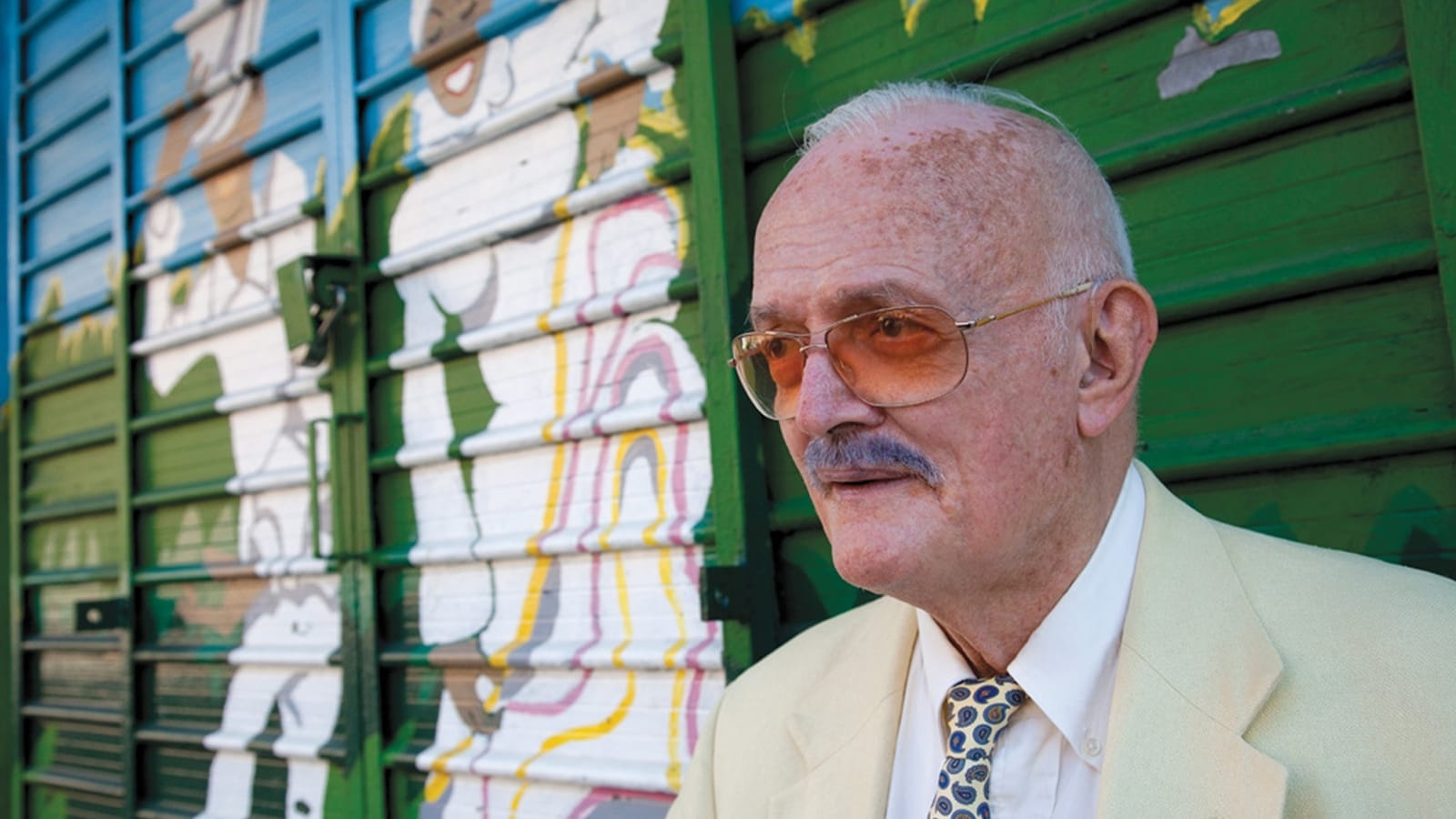Robert Farris Thompson, preeminent scholar of African art history, dies at 88
Affectionately known as “Master T,” he served as the head of Timothy Dwight College for more than three decades.

Courtesy of Matthew Sussman
Robert Farris Thompson ’55 GRD ’65, whose pioneering scholarship and seminal work “Flash of the Spirit” defined the horizons of African art history, died on Monday. He was 88.
Hailing from El Paso, Texas, Thompson was the Colonel John Trumbull Professor of the History of Art and Professor Emeritus of African American Studies, serving more than half a century on Yale’s faculty. He was the first Yale graduate and second person in the country to earn a History of Art doctorate specializing in African art. He is also credited with coining the term “Black Atlantic.”
“We are all in deep mourning about the passing of a transformative figure in the field, especially for the study of the arts of Africa and African diaspora, as well as art history more broadly,” professor of classics and history of art Milette Gaifman wrote in an email to the News. “This is an end of an era.”
Thompson’s 1984 book, “Flash of the Spirit,” is still the preeminent text for scholars of African and Afro-American art and remains in publication today.
For 32 years, Thompson lived in Timothy Dwight College and served as the head of college — a position then-known as Master — and was dubbed by generations of undergraduates as “Master T.” Thompson was widely known for his rambunctious energy and fierce enthusiasm for intramural and campus sports. His signature word of encouragement, “Àshe!” translates to “we make it happen” in Yoruba. “Àshe!” remains the college’s rallying cry today.
“He made good on the promise of Yale and made the residential college system matter,” said Don Martin ’95. “Master T was kind of like an older brother, ready to run amok, wreak havoc and push you to get outside your comfort zone. He was the best of Yale.”
Throughout his life, Thompson crisscrossed oceans to conduct field research in Nigeria, Congo, Brazil and Peru. Within his department, he was a figure of generosity to younger scholars, often collaborating excitedly in bits of the many, many languages he picked up. He remained a prolific writer throughout his life, most recently publishing “Tango: The Art History of Love” in 2005. Cecile Fromont, professor of African and South Atlantic Art, called Thompson a “colossal innovator” whose works both grounded his discipline and made waves in the art history world more broadly.
An early pioneer of employing multimedia experiences in museum curation, Thompson masterminded exhibits at the National Gallery of Art and the University of California, Los Angeles. His library of books and research papers is now at the Getty Research Institute in Los Angeles, where his scholarship was celebrated in 2020.
“I don’t think I’ve ever known another colleague that was as able to integrate all aspects of the art — sound, performance, body, movement, visual capture — as well as he did,” said Mary Miller, former Yale College dean and chair of the history of art department.
For years, Thompson taught the lecture “New York Mambo: Microcosm of Black Creativity,” more commonly known as “Mambo,” often drawing in legions of students from his own college. Instruments were commonly featured during lectures, including his frequent use of his lectern as a drum which harked back to his tours as USO drummer and his 1959 Afro-Cuban percussion album. Many recall his vivid demonstrations connecting Yorùbá dance traditions to American rock & roll and hip-hop.
Thompson actively curated TD’s Chubb Fellowship lecture series, transforming the college into a revolving door of the world-famous figures in his phonebook, including Walter Cronkite, Ted Kollek, David Byrne and James Brown, who he interviewed for a Rolling Stone cover story. Thompson, Davenport Head of College John Witt ’94 said, was the “quintessential” head of college who translated scholarship and teaching into a lively residential community.
“Knowing him in person was to learn a new way to be — to confront the courage, the panache, the daring to dance,” John Loge ’66, dean of Timothy Dwight during Thompson’s tenure, wrote to the News.
Thompson is survived by a sister, two children and five grandchildren and great-grandchildren.







